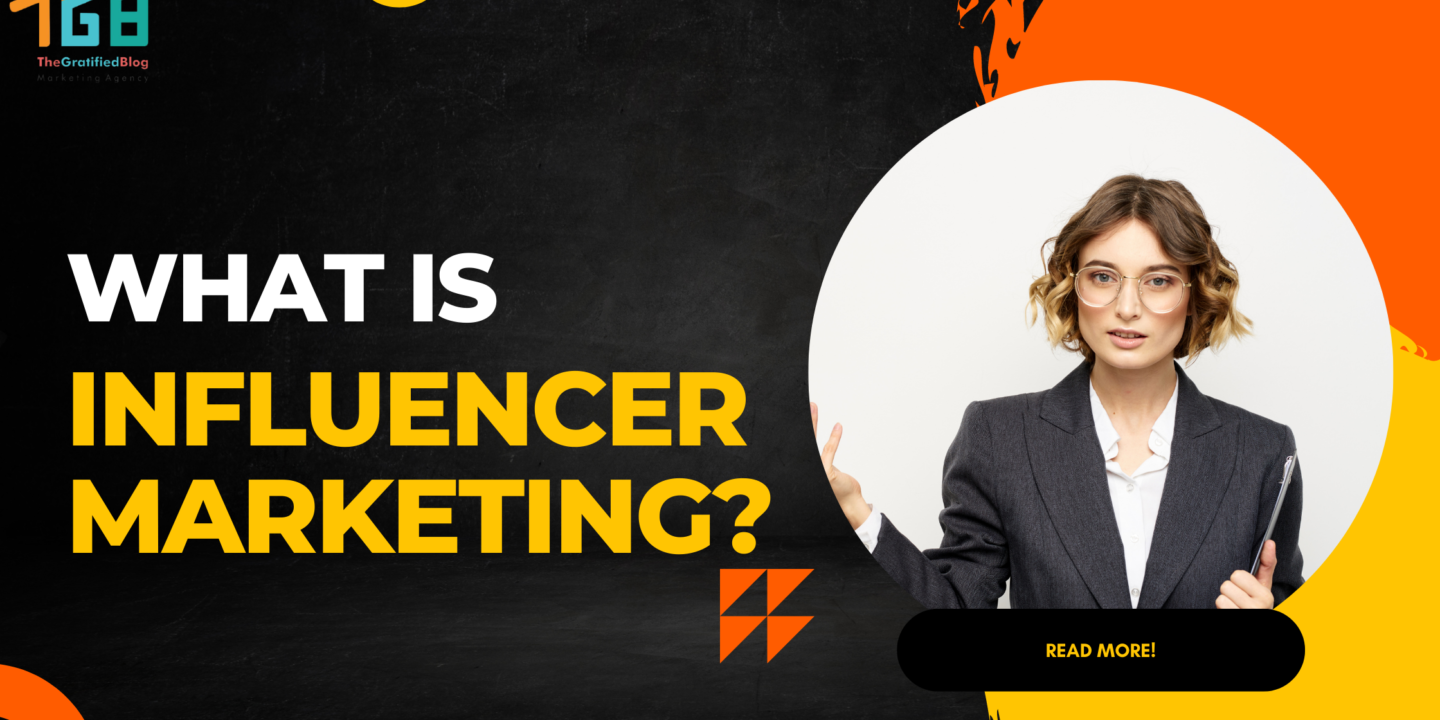
Introduction With Influencer Marketing
Defining the concept of What Is Influencer Marketing? Influencer marketing is social media marketing that uses endorsements and product mentions from influential people to promote a brand or product. Influencer marketing can increase brand awareness, create buzz around a new product launch, or drive sales.
Influencers are typically people with a large following on social media, such as bloggers, vloggers, celebrities, or industry experts. In return for their endorsement, brands often give influencers free products, exclusive access to new products, or monetary compensation.
Influencer marketing is considered an effective way to reach consumers, especially millennials and Generation Z, who are more likely to trust recommendations from peers than traditional advertising.
The Benefits Of Influencer Marketing

Influencer marketing has become an increasingly popular way for brands to promote their products and services. By partnering with influential people on social media, brands can reach a large audience of potential customers. There are several benefits of influencer marketing.
- First, it can be an effective way to reach a target audience. When influencers share content about a brand, their followers are more likely to see and engage with it.
- Second, influencer marketing can build trust and credibility. When someone we trust recommends a product or service, we are more likely to try it ourselves.
- Third, influencer marketing can be more cost-effective than traditional advertising. Influencers typically charge less than traditional advertisers, and their followers are often more engaged than the general public.
- Finally, influencer marketing can generate leads and sales. Influencer marketing can increase website traffic and lead conversion rates when done correctly.
For these reasons, influencer marketing is an effective tool that should be considered by any business looking to grow its online presence.
What Are The Types of Influencer Marketing
Brands can use a variety of influencer marketing strategies to advertise their products or services. Here are some common types:
Sponsored Content
In this type of influencer marketing, brands pay influencers to create and share content featuring their products or services. It can take the form of dedicated posts, stories, videos, or reviews, clearly indicating the collaboration is sponsored. Video marketing is a particularly impactful aspect of this strategy.
Product Placements
Brands provide influencers with their products to be featured organically within the influencer’s content. The influencer may showcase or mention the product in their videos, photos, or posts without explicit sponsorship disclosure.
Brand Ambassadorship
Brands establish long-term partnerships with influencers who become brand ambassadors. These ambassadors play a vital role in brand marketing by consistently promoting the brand’s offerings through their content, representing the brand’s values and image over an extended period.
Here are some key aspects of brand ambassadorship:
- Long-term Partnership: brand ambassadorship entails a continuing partnership between the influencer and the brand, as opposed to one-time sponsored posts. The ambassador actively promotes the brand over an extended period, becoming a consistent face associated with the brand.
- Brand Alignment: Brand ambassadors are selected based on their relevance to the brand’s values, messaging, and target market. Their personal brand and content should naturally align with the brand, creating a genuine connection with their audience.
- Authenticity: Brand ambassadors frequently already have a strong connection to the brand or its products. Because it corresponds with their own likes and ideas, their recommendation is seen as being more sincere and reliable.
- Content Creation: Brand ambassadors are responsible for creating content that features or highlights the brand’s offerings. This can include social media posts, blog articles, videos, or other forms of content. Through their content creation services, brand ambassadors effectively showcase the brand’s products or services, capturing the attention of their audience and generating authentic engagement.
- Exclusiveness and Loyalty: Brand ambassadors are typically expected to be loyal to the brand and refrain from promoting direct competitors. This exclusivity ensures a stronger association between the ambassador and the brand in the eyes of their followers.
- Relationship Building: brand ambassadors frequently interact with their audience, answering questions, sharing personal stories, and soliciting feedback on the products offered by the brand. This one-on-one communication may improve the bond between the brand and its customers while also fostering a sense of community.
- Events and Collaborations: Brand ambassadors may participate in brand events, product launches, or collaborations, further solidifying their connection with the brand and increasing their visibility.
Giveaways and Contests
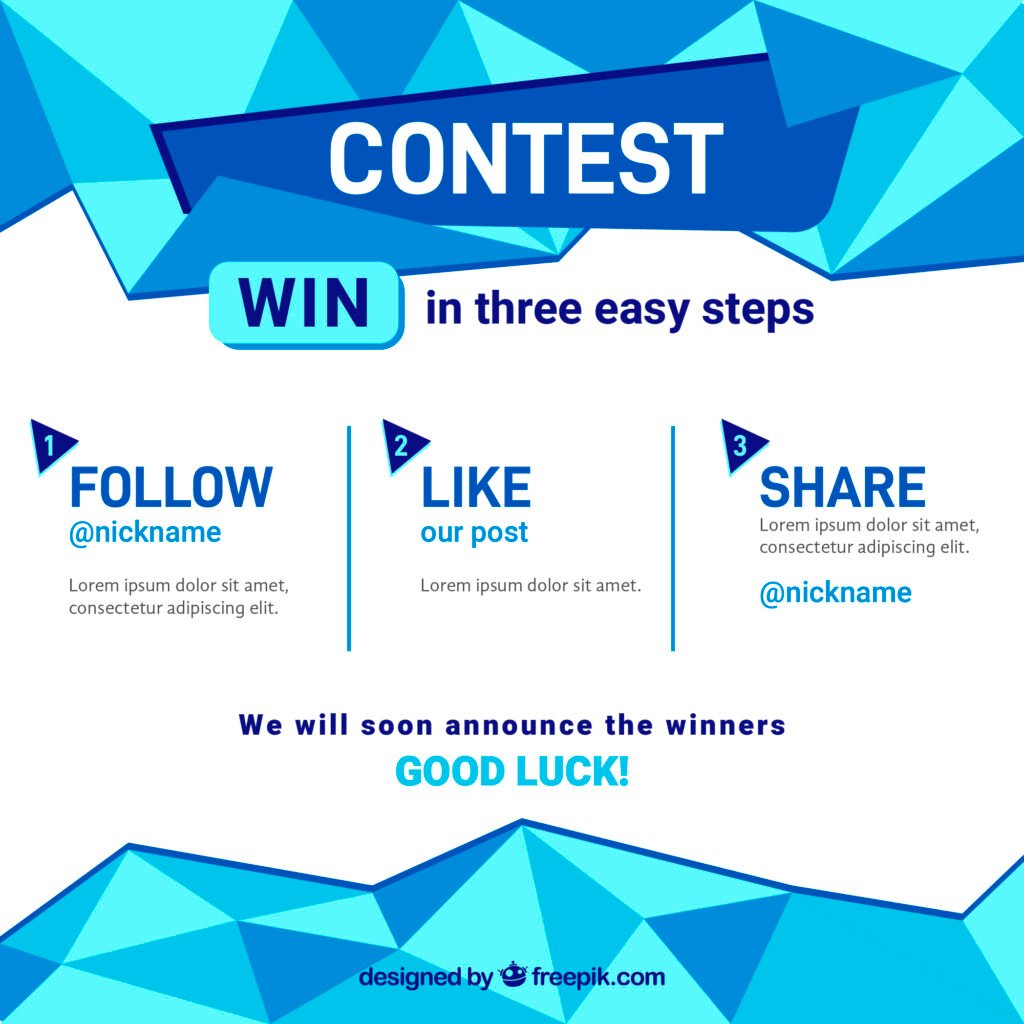
Brands collaborate with influencers to organize giveaways or contests, where followers can participate for a chance to win prizes. This type of campaign can generate buzz, increase engagement, and expand the brand’s reach.
Here are some key points about giveaways and contests:
Prize Offerings:
Brands offer desirable prizes, such as products, experiences, gift cards, or exclusive access, to entice participation and create excitement among their audience.
Entry Mechanisms:
To enter the giveaway or contest, participants often need to meet specific entry requirements. This can involve doing things like liking, commenting on, sharing, and following accounts on social media, as well as completing forms and producing user-generated content.
Virality and Word-of-Mouth:
Well-executed giveaways and contests have the potential to go viral as participants share their involvement and encourage others to participate. This can generate organic word-of-mouth promotion for the brand and serve as a powerful tool for viral marketing.
Affiliate Marketing
Influencers provide their audience with special referral links or coupon coupons. The influencers receive a commission or other rewards when their followers make purchases using those links or vouchers. Influencers are rewarded for promoting conversions in this performance-based model.
Here are the key elements of affiliate marketing:
- Affiliates are people or organizations with an online presence who promote a brand’s products or services.
- Brands create affiliate programs to manage their partnerships with affiliates.
- Affiliates promote the brand’s offerings through various channels like websites, social media, or blogs.
- Brands provide affiliates with unique tracking links or codes to attribute sales or referrals to them.
- Affiliates earn commissions based on the predefined commission structure set by the brand.
- Affiliate marketing is performance-based, rewarding affiliates for successful referrals or sales.
- Brands maintain relationships with affiliates through resources, support, and regular communication.
Also, Read – Affiliate Marketing For Bloggers: A Simple Guide
Influencer Takeovers
Influencers are given temporary access to a brand’s social media accounts so they can develop and share content with the audience. This could stimulate people, open their eyes to new ideas, and expose followers of the influencer to new things.
Influencer takeovers provide an opportunity for brands to leverage the influencer’s creativity, engagement, and influence to connect with their target audience authentically and engagingly. It can help generate buzz, expand reach, and foster a deeper connection between the brand and its audience.
Types Of Influencers
There are three types of influencers:
Celebrities

Celebrities have a large following and can use their platform to promote products or ideas.
Social Media Personalities
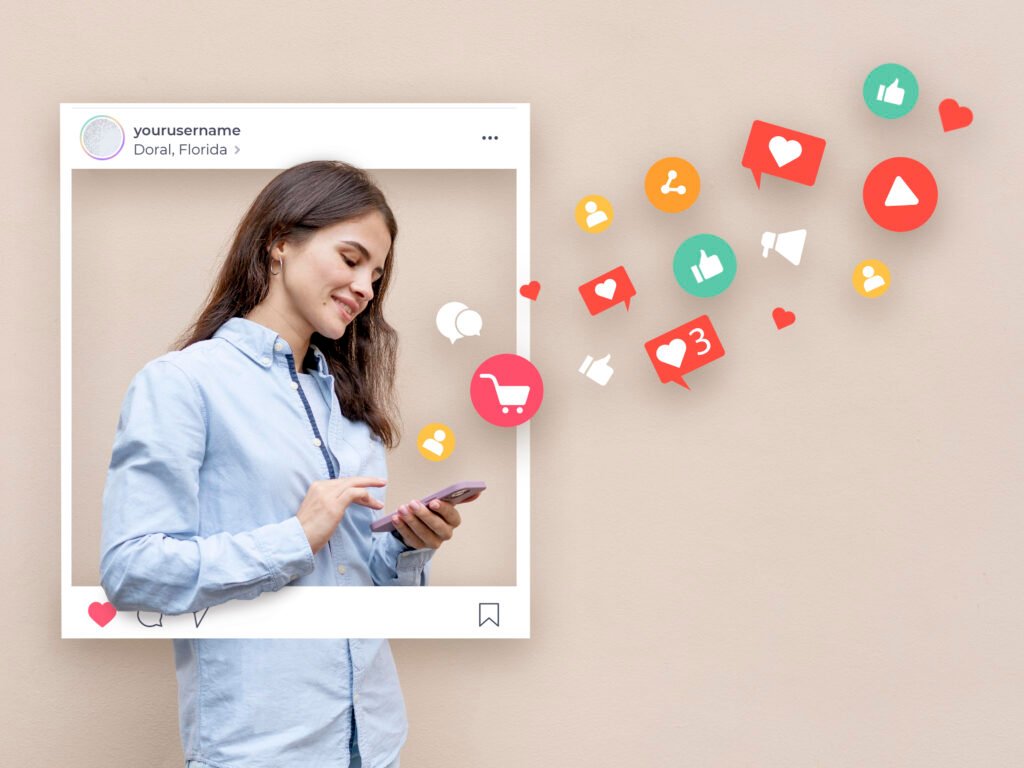
Social media personalities have amassed a large following on platforms like Instagram or YouTube. They often collaborate with brands to create sponsored content.
Thought Leaders

Thought leaders are experts in their field who share their knowledge and insights with others. They often write articles or give speeches to educate people about their expertise.
While celebrities, social media personalities, and thought leaders all have influence, they differ in terms of their reach, audience, and content. As a result, it’s important to consider the type of influencer you want to work with before embarking on a collaboration.
Also, Read – How To Become An Influencer: An Ultimate Guide For 2023
How To Find The Right Influencers For Your Brand?
These days, it’s all about social media marketing. And a big part of that is finding the right influencers for your brand. But how do you find them? Here are a few tips:
- First, consider your target market. Who are you trying to reach? What kind of influencer would appeal to them? For example, if you’re trying to reach millennials, you might want to look for an active influencer on Snapchat or Instagram.
- Second, take a look at your competitors. Who are they working with? You can learn a lot by watching what your competitors are doing.
- Third, use an influencer marketing platform like BuzzSumo or Traackr. These platforms can help you find the right influencers for your brand by searching for key phrases and keywords related to your industry.
- Finally, don’t forget to vet the influencers you’re considering working with. Look at their social media profiles and see if their values align with your brand. You should also ensure they have a decent-sized following engaged with their content.
By following these tips, you can be sure to find the right influencers for your brand.
The Steps Involved In An Influencer Marketing Campaign
Any business looking to run an influencer marketing campaign needs to be aware of the steps involved in such a campaign.
- First and foremost, businesses need to identify their target audience.
- Once the target audience has been identified, businesses need to research and outreach to potential influencers who would be a good fit for the campaign.
- After establishing relationships with influencers, businesses need to develop creative content and strategies for the campaign.
- Once the campaign goes live, businesses need to track and analyze the results to optimize future campaigns.
Following these steps, businesses can launch successful influencer marketing campaigns that generate tangible results.
Measuring The Success Of An Influencer Marketing Campaign
Measuring the success of an influencer marketing campaign can be difficult. Several factors are to consider, including engagement rates, reach, and conversions. However, one of the most critical metrics is ROI. To calculate ROI, you need to consider the cost of the campaign and the revenue generated.
Measuring the success of an influencer marketing campaign can be difficult, but it’s important to track metrics such as engagement rate and ROI to ensure that your campaigns are successful. For example, if you spend $10,000 on a campaign and generate $100,000 in sales, your ROI would be 10%. Another important metric is the engagement rate. This is the percentage of people who saw your content and interacted with it. For example, if 100 people see your post and ten people like it, your engagement rate would be 10%.
FAQs Of Influencer Marketing
Q1. What Is Influencer Marketing And How Does It Work?
Influencer marketing is a type of marketing that focuses on using key influencers to promote a brand or product. These influencers can be anyone with a large following on social media, a blog, or another online platform. They can also be celebrities, athletes, or other well-known figures.
Brands work with influencers to promote their products or services through sponsored posts, giveaways, or other forms of advertising. In many cases, influencers are given free products or services in exchange for their endorsement. Influencer marketing can effectively reach a large audience and generate interest in a brand or product.
However, it is essential to choose influencers who are a good fit for the brand and have a positive reputation. Otherwise, the campaign could backfire and damage the brand’s image.
Q2. Who Are The Key Players In The Influencer Marketing Space – Brands, Agencies, And Influencers Themselves?
The influencer marketing space comprises three key players: brands, agencies, and influencers. Brands are the companies or products that are being promoted by influencers. Agencies are the intermediaries who connect brands with influencers and handle the details of the campaigns. Influencers are social media personalities who promote the brands to their followers. Each of these players has a different role to play in the influential marketing space.
Brands pay for promotion, agencies manage the campaigns, and influencers promote. While all three players are essential, influencers have the most direct connection with the people who see their posts. As a result, they have the most power to influence purchase decisions.
Q3. What Are Some Of The Benefits Of Using Influencer Marketing To Promote Your Brand Or Product?
Influencer marketing has become an increasingly popular way to promote brands and products. By partnering with influencers with a large social media following, companies can reach a broad audience quickly and effectively. There are many benefits to using influencer marketing, including increased brand awareness, improved brand reputation, and higher sales.
- One of the main advantages of influencer marketing is that it can help to increase brand awareness. When influencers share information about a brand or product, followers are exposed to the company or product. This can help increase brand awareness and familiarity, leading to higher sales.
- In addition, influencer marketing can improve brand reputation. Consumers are more likely to trust recommendations from people they follow and respect than traditional advertising. Therefore, if an influencer promotes a brand or product, their followers are more likely to view the company or product in a positive light. This can lead to improved brand reputation and customer loyalty.
- Finally, influencer marketing can directly lead to higher sales. Studies have shown that nearly half of all consumers say they have purchased a product because an influencer recommended it. When consumers see someone they trust promoting a product; they are more likely to be interested in purchasing it themselves.
Overall, influencer marketing has many benefits in promoting brands and products. By increasing brand awareness, improving brand reputation, and driving sales, influencer marketing can be an extremely effective way to grow a business.
Q4. How Can You Identify The Right Influencers For Your Brand Or Product, And What Should You Look For When Vetting Them?
Identifying influencers for your brand can be tricky. It would be best if you kept a few things in mind when looking for the right person to promote your product. First, consider the size of their following. An influencer with many followers is more likely to reach a wider audience and have a more significant impact.
However, don’t discount smaller influencers – they may have a more engaged and passionate following that is more likely to convert into customers. Second, look at the content they produce. Does it align with your brand values? Is it high quality and engaging? Third, consider their engagement levels.
An influencer who regularly interacts with their followers is more likely to build trust and create a strong relationship with their audience. When vetting influencers, consider these factors to ensure you find the right fit for your brand.
Q5. What Common Mistakes Do Brands Make When Implementing An Influencer Marketing Campaign?
One of the most common mistakes brands make when implementing an influencer marketing campaign is not doing their research. It’s essential to understand your target audience and what type of influencer they would be most receptive to. Otherwise, you run the risk of your message falling on deaf ears. Another mistake is failing to disclose the relationship between the brand and the influencer.
If people feel they’re being misled, it will damage both the brand and the influencer’s reputation. Finally, brands need to be careful not to overuse influencers. If every social media post is an advertisement, people will quickly get tired of seeing it and tune out. Used judiciously, however, influencers can be a powerful tool for reaching new customers.
Conclusion
We hope this article has helped clarify influential marketing and how it can be an effective tool or strategy for growing your business. Whether you want to increase brand awareness, improve your reputation, or drive sales, influencer marketing can help you achieve those goals.
To find the right influencers for your brand and ensure a successful campaign, do your research, look at their content and engagement levels, and be sure to disclose all relationships. And finally, be sure to avoid common mistakes like not doing your research or overusing influencers. With these tips in mind, you can successfully implement an influencer marketing campaign that will help take your business to the next level.
Stay tuned for more influencer marketing tips and tricks we will introduce in the coming weeks! In the meantime, if you want help with your influential marketing efforts, consider working with a reputable agency that can partner with you to achieve your business goals.
Also, Read – How To Track Influencer Marketing?




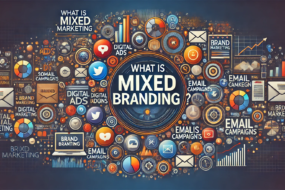

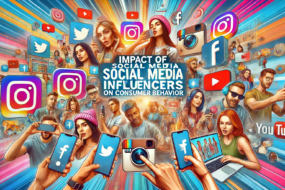
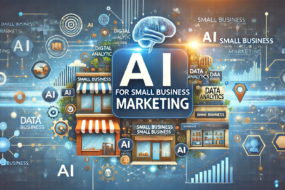
No Comments